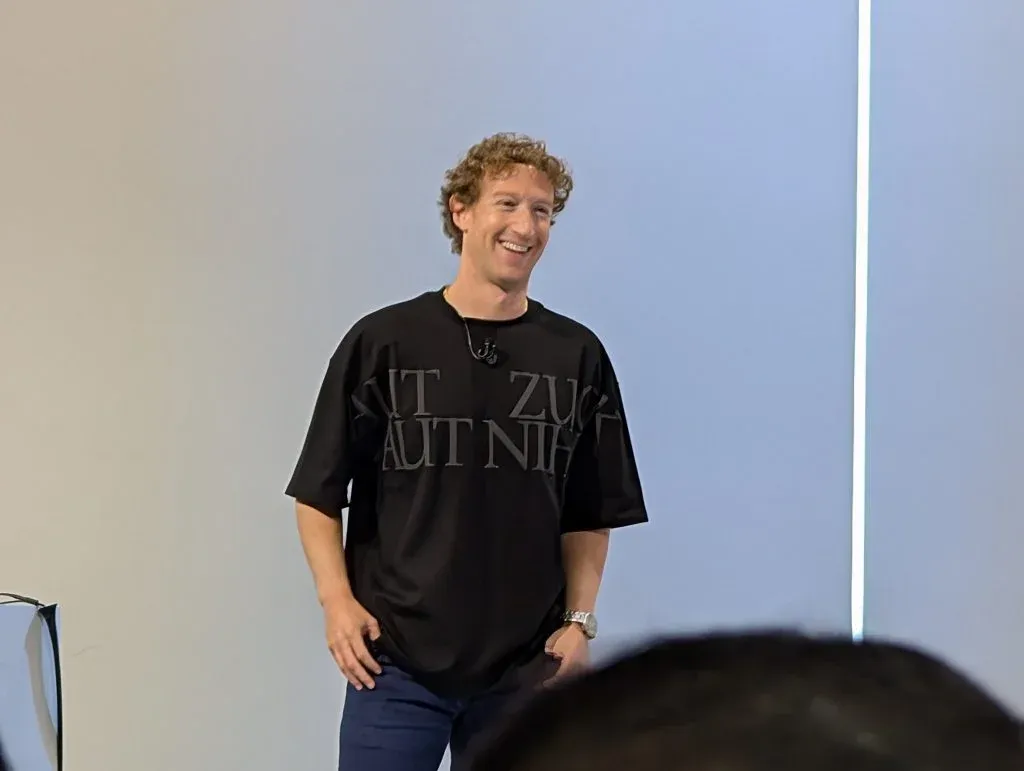Armando Iannucci was behind the American television show Veep, but before that he was the creator of British programme The Thick of It, that satire of the British government and its professional political class featuring business gurus, spin doctors and strategists such as Lord Julius Nicholson and Dr Stewart Pearson promoting policy development through “helicopter thinking” and “blue-sky vision” gained from industry insiders, focus groups, and policy-making retreats where mobile phones must not be permitted. The show effectively demonstrated the disconnection of the supposedly “democratic” process of "representative" parliament from the everyday lives of ordinary working class people.
Pop culture has long made a fortune from poking fun of certain professions – from tax collectors to traffic cops – but politicians have perhaps been subjected to the most scathing satire, fuelling an entire industry. And when a market is suddenly threatened, it isn’t just costs that are cut back on, but often reason along with them.
You can be forgiven for failing to remember – as few talk about it these days – but for quite some time the British media was fixated on the MP’s expenses scandal; it gave them clicks and ratings and revenue, but when a man who bucked the trend became leader of the Labour party, they went after him, aware of his threat to the establishment they were part of; a bubble that the general population were kept outside of – our role was to remain as simply consumers of this output of media. Yes, even Armando Iannucci gladly joined in with the smear campaigns on Jeremy Corbyn.
It was similar in the United States, where the popularity of social democrat Bernie Sanders increased right alongside resentment towards out-of-touch rich liberals who instead backed Hillary Clinton, putting their might towards holding the door tightly closed on Bernie while leaving another wide open for Trump. So, here we are. And now the same privileged people continue making a career out of mocking the politicians, while working class people suffer the most. Indeed, when Covid first hit, most of the liberal media was fixated on the corruption and double standards of policymakers (as though we ought to be surprised) rather than reflecting on how we can keep us safe, to the extent that many people assumed Covid would be tackled sensibly by the likes of Sir Keir Starmer or Joe Biden (who, in fact, exacerbated the situation, thus failing to tackle denialists and eugenicists who are either preparing to seize power or already have).
Centralised Corporate Social Media
This misinformation and disinformation has thrived on social media spaces operated by the likes of Meta and X, centralised and controlled by fascism apologists Mark Zuckerberg and Elon Musk, respectively. With the likes of Indymedia long since collapsed, we came to rely on centralised social media not only for the Occupy movement and the Arab Spring, but also as our one-stop shop to build our profiles (in terms of personal information, and in terms of our public profiles from a career perspective). With capitalism in crisis, it has turned to authoritarianism to protect the status quo, and fascistic control of information of course became crucial for its biggest hitters like Zuckerberg and Musk.
Some of us realised the problem and learned from it, lest we be doomed to repeat it, and found a potential solution: democratic social media, run by the people, for the people – utilising software to create a social media network of decentralised online spaces as part of a federated universe of servers, or “Fediverse.” What’s more, the Fediverse provided a counter to the walled gardens of grim corporate-controlled social media where we would unthinkingly create a video account, or a photo account, or a microblogging account, or alternatively were able to simply “sign in with a Facebook/Google/Apple account” so that those "Big Tech" companies could act as the default gatekeepers of the internet, even track our activity and build data profiles on us to claim accurately-identified target markets for advertisers – as is their raison d’etre – or worse simply hand over the pre-packaged data to police investigating "rebels" or "radicals" in opposition to authoritarianism.
The Fediverse’s rather unique offering was to simply enable us to potentially use our microblogging account such as Mastodon to, say, view our friends’ photos on Pixelfed or videos on PeerTube – since these Fediverse sites are interconnected.

Even if this has been lost on many people, or perhaps not necessarily important to them, Mastodon did experience a surge in use when Elon Musk purchased Twitter to promptly amplify fascists while banning anti-fascists – yet still some leftists remained on his site, claiming it was important to campaign “wherever people are.”
Campaign wherever people are? Including Elon’s online Nazi bar? Apparently so. They were still failing to apply in-person standards to the web. In their “IRL” discourse, they claimed to care about decentralised safe spaces with codes of conduct, but when it came to Twitter, or now X, they seemed unable to apply the same principles. It may be because too many leftists – particularly in the traditional trade union scene where there are career opportunities to be pursued – want to retain the followings they built, similar to how they claim to care about disability justice but can’t bear to cover their faces with a respirator in case a photo op arises.
Okay, it can seem like a tough decision – I left behind several hundred people when I announced my departure from Facebook, and several thousand followers on old Twitter when I announced my exit from X. But did anything fundamentally change for me? No. And I'm not the only one who has found pastures new.

With increasing cynicism towards Meta and especially X, ex-Twitter folx have indeed sought alternatives, and Mastodon seemed the perfect fit. Meta’s strategy to stem any loss was Threads, a brand-new (and therefore seemingly untarnished) brand that could essentially plug into the Fediverse, like a virus – hence Vanta Black enabling those running their own Fediverse servers to sign a “FediPact” vowing to de-federate from Threads, essentially cutting out said virus from a non-corporate, non-profit, democratic social network.
Bluesky Ahead
Threads has enjoyed varying success, but hey: there’s no Twitter replacement like a Twitter replacement created by Twitter in the first place. That’s right: Bluesky was borne out of a Twitter project, and even feels like “good old” Twitter when you use it.
Now backed by Blockchain Capital (formerly Crypto Currency Partners), Bluesky is overseen by its CEO, my namesake Jay Graber – no relation to David Graeber, which is spelled differently, but to make this even more fun, "Jay" is a nickname and her actual first name, Lantian, means "blue sky" in Chinese (which is coincidental).
“hey richest men in the world, i think social should be a protocol. i think my way is going to work, you should give me money to do it, and if we scale trust and delegate authority we can connect everyone in a better way than they were connected before. it’ll change the internet.”
— Jay 🦋 (@jay.bsky.team) 2023-05-03T06:57:53.360Z
When Bluesky was in its infancy, joining was largely through "invite codes," apparently to manage growth, but this also actually created a sense of exclusivity for people feeling nostalgic towards pre-fascist Twitter. Yet Mastodon was literally right fucking there: maintained by a non-profit, no less. Whenever I'd mention Mastodon in organising groups discussing our post-Twitter online presence, someone would stare blankly for a moment before saying "...I have some Bluesky invite codes." And as someone who joined their very first Mastodon server back in around 2016, I found all this very frustrating, at a time when it felt imperative we learn why Twitter failed.
"We're building an open source social network that anyone can take into their own hands and build on, and it's something that's radically different from anything that's been done in social media before," Graber told CNBC, ignoring Mastodon's near-ten year history up to that point, before then being evasive on the potential introduction of mass advertising.
"Fuck Bluesky," I angrily posted on Mastodon. "Can we please stop trying to reinvent the fucking wheel." As weeks and months passed, as I caught more chatter about Bluesky as an alternative, I felt compelled to vent my spleen, especially at the second "X-odus" – because Musk's fascism only apparently became intolerable when he joined the Trump administration. And there were no invite codes needed this time...the switchover was essentially complete.
But wait. Had I been too hasty? Too quick to judge? Too harsh?
There sure were a lot of people who seemed to sniff disdainfully at my sentiments, before heading off to Bluesky where the cool kids were, gaining more interactions, and therefore promoting projects easier. And in fairness, there were those who just found the experience more intuitive, and certain features more useful. Bluesky had "starter packs" for those starting from scratch post-Twitter and wanting to rebuild their home feed. There were ready-made customised feeds plugged in to the main page. There were even independent initiatives working on their own ways of using the open source software. Even the brilliant tech journalist Cory Doctorow admitted: "Bluesky sure seems like a lot of fun! They've pulled tens of millions of users over from other systems, and by all accounts, they've all having a great time." And as CEOs go, Jay Graber certainly seemed to be contributing to it.

So was I, in fact, being a party pooper? Was I being too stubborn? Too intolerant? And was I also being just too damn, well, white to recognise the reasons why people of colour might not have enjoyed their experience on Mastodon and the Fediverse?
"What took me aback regarding the Fediverse is that my networks were mostly 'leftists' and self-proclaimed radical thinkers regarding race, ableism, gender, patriarchy, sexuality, et cetera, and yet what I was being exposed to was a lot of naiveté or hostility for questioning whiteness as a basis for many people’s takes or approaches to these subject matters. And if I were to question or push back on their whiteness, I was often accused of being biased myself. It became clear to me that there were many queer, radical leftists on the Fediverse who had never taken the time to address race, whiteness, white supremacy in their politic, who hadn’t done any kind of organising or work outside of online community spaces, and hadn’t engaged with the literature of Black and queer folks of colour." - Marcia X
Decentralisation and Distribution
Then there was the argument that – whereas Mastodon was built on a protocol called ActivityPub – Bluesky, built on the AT Protocol, was very much still de-centralised, and that's something that should be celebrated, particularly by anarchists. But there is a difference between decentralised models and distributed models, like the Fediverse.
Bluesky protocol engineer Bryan Newbold claimed: "This doesn't mean only well-funded for-profit corporations can participate! There are several examples in the Fediverse of coop, club, and non-profit services with non-trivial budgets and infrastructure. Organisations and projects like the Internet Archive, libera.chat, jabber.ccc.de, Signal, Let's Encrypt, Wikipedia (including an abandoned web search project), the Debian package archives, and others all demonstrate that non-profit orgs have the capacity to run larger services. Many of these are running centralised systems, but they could be participating in decentralised networks as well." However, ActivityPub's Christine Lemmer-Webber pointed out that the annual budgets of some of those organisations are in the range of roughly $7-178 million, adding, "It's not something your local neighbourhood block can just throw together out of pocket change."
"Fire Exits" for Bluesky?
These differences in perspective aren't just between one group of protocol engineers and another, clashing over work methods. I think they're more profound than that. Cory Doctorow is wise to it. Because while Mastodon is a non-profit, Bluesky is a public benefit corporation, which sounds nice because it has some social impact aims, but is still for-profit. And with that comes greater risk of what Doctorow calls "enshittification" from business interests.
"The problem is that without federation, all those users are vulnerable to bad decisions by management (perhaps under pressure from the company's investors) or by a change in management (perhaps instigated by investors if the current management refuses to institute extractive measures that are good for the investors but bad for the users). Federation is to social media what fire-exits are to nightclubs: a way for people to escape if the party turns deadly. So what's the answer? Well, around Mastodon, you'll hear a refrain that reminds me a lot of the Napster wars: 'People who are enjoying themselves on Bluesky are wrong to do so, because it's not federated and the only server you can use is run by a VC-backed for-profit. They should all leave that great party – there's no fire exits!' This is the social media version of 'To be in our movement, you have to stop listening to popular music.' Sure, those people shouldn't be crammed into a nightclub that has no fire exits. But thankfully, there is an alternative to being the kind of scold who demands that people leave a great party, and being the kind of callous person who lets tens of millions of people continue to risk their lives by being stuck in a fire-trap. We can install our own fire-exits in Bluesky." - Cory Doctorow
He then highlighted the Free Our Feeds initiative he endorsed at its launch. Amongst its aims? To "billionaire-proof" social media, and to push for long-delayed federation to Bluesky. "For some Mastodon users, Free Our Feeds is dead on arrival – why bother trying to make a for-profit project safer for its users when Mastodon is a perfectly good nonprofit alternative? Why waste millions developing a standalone Bluesky server rather than spending that money improving things in the Fediverse?" he acknowledged. "My answer to 'why spend money fixing Bluesky?' is 'why leave 20 million people at risk of enshittification when we could not only make them safe, but also create the toolchain to allow many, many organisations to operate a whole federation of Bluesky servers?' If you care about a better internet – and not just the Fediverse – then you should share this goal, too."
Bluesky-based initiatives like Blacksky are impressive, and inspirational. "Most social platforms control what users see, how communities operate, and who gets to feel safe online," their website states. "Blacksky changes that by providing the infrastructure for independent, self-governed digital spaces. Our tools allow communities to define their own rules, curate their own feeds, and manage moderation on their terms, ensuring that users—not corporations—control their online experience."
In response, one Mastodon user said: "I love to see folks trying to decentralise [Bluesky], but I'm still so confused on why anyone would build on [AT Protocol] when so other options exist that aren't tied to a corporation and are already in mass adoption. I feel like I'm missing something." Anuj Ahooja replied: "Both solve problems the other one has, and some folks prefer the trade-off with AT. Blacksky's strategy is also uniquely AT Proto, this couldn't have been done the way it was using ActivityPub (yet!)."
Preach
After signing up for Cory Doctorow's online talk and Q&A with the Open Rights Group (of which I'm a member), and acknowledging that there were some good people doing good things on Bluesky, I finally decided I didn't want to be the kind of "scold" he had described, and wondered how much it could hurt to go onto Bluesky and find out more from those who have experience, while raising awareness of these issues to the very people I'd like to consider them, rather than largely preaching to the converted only on Mastodon. There are, after all, many reasonable antifascist folks on Bluesky who just so happened to hear about or grasp it before they could do so with Mastodon (perhaps part of what frustrated me so much in the first place, if I'm honest: good people missing out on good stuff I just know they'd love, all because of media hype!)
It helped for me to step back and regain some perspective after the social media chaos of the last few years. And it's clear that Bluesky was hardly Elon's Nazi bar, that's for sure – and it was perhaps even irresponsible of me to aggressively reject it and therefore risk creating such a false equivalence. In addition, if I had indeed rejected simply going "wherever people are" on the basis that we shouldn't go where the wrong people are, there was an unavoidable argument for going wherever the right (and not far right) people are.
"Over the past year, users have increasingly abandoned platforms like X in favour of alternatives such as Mastodon, the Fediverse, and Bluesky. However, many users remain trapped in Big Tech’s 'walled gardens' because their content, connections, and networks are deeply embedded within them. How often do we stay on Facebook or X simply because a specific relative, organisation, or journalist we follow remains active there? Writ large, these 'network effects' make Big Tech heavily entrenched, for users, organisations and advertisers." - Open Rights Group
I also had a great deal of respect for fellow media activist Elena Rossini, who has been nothing short of an inspiration in covering and promoting the principles of the Fediverse – no doubt at some sacrifice, professionally, by losing large audiences on "Big Tech" sites – and who helped make me decide to stop "yelling in my bubble."
So, off I went. I had access to Bluesky accounts through my work – where I had already cautiously agreed to the use of Bluesky but continued to flat-out refuse to agree to any activity on Meta and X – and so I had a nosy around. It seemed nice enough. A few Centrist Dads and anti-Trump liberals I could probably tolerate. I'm on a fairly radical server on Mastodon that federates with servers that fit its ethos, so I admit I am probably used to a more kick-ass crowd. But could these Bluesky users be engaged with in diplomatic discussion and debate about the online spaces we want? Of course!
helping build a solarpunk civilization that is long-term stable
— Jay 🦋 (@jay.bsky.team) 2023-05-03T07:33:54.634Z
However, the argument “go wherever people are” is what none other than Trump's right-hand man, that narcissist enabler JD Vance, actually co-opted. Vance himself audaciously joined up, firstly sending out an anti-trans post alongside the remark "Hello Bluesky, I've been told this app has become the place to go for common sense political discussion and analysis. So I'm thrilled to be here to engage with all of you," in an attempt to needle as many people who actually possess common sense as possible. Trump's Mastodon rip-off, the so-called Truth Social, wasn't enough for Vance. Like Musk and Zuckerberg, he knows that their proverbial internet virus of evil must spread where it can. And into Bluesky, it clearly could. So what might the response be to deal with his vile bigotry there?
Much like the liberal accounts on Bluesky calling for battling fascists "through the courts," the strategy was to “ignore him, and hope he’ll go away like many other fascists have” ...whereas on Mastodon servers like mine, as mentioned, there are clear codes of conduct, and if a server allows such behaviour, that server (if it’s worth its salt) will de-federate from it. On Bluesky, JD Vance continues unabated. Meanwhile, other accounts have begun to disappear.
“Bluesky, a microblogging app that actively participates in the Zionist genocide by deleting Palestinian fundraising accounts and automatically marking and moderating them as spam” - Vicky Osterweil
The clarity that exists with the Mastodon model just isn't there with Bluesky's style over substance. There is potential, yes, but that potential has been realised already, to a great extent, by Mastodon and the Fediverse, so while I still can't shake the feeling that we're simply trying to reinvent the wheel here mostly because backers of a for-profit have pushed it on us – buoyed by CNBC interviews and massive amounts of publicity – I also don't want to boycott Bluesky and therefore fail to help change actually occur there when it could. Maybe. Just maybe.
So if you're on Bluesky – yes, like me, now I too drank the fucking Kool-Aid – I hope you hold an account there with no illusions. There are few plans in place for how to deal with fascism, fascists themselves, or fascist takeovers for that matter, let alone the constant looming threat of enshittification and worrying forms of imbalanced moderation. But I do hope things can develop and be improved. I do hope more people become aware of Mastodon and the Fediverse (I certainly aim to do my bit). And I do hope I'm not soon writing a piece, like I have about Twitter, and yes Facebook before that, declaring "Bluesky Isn't a Tool Any More. We're the Tools for Using It." After all, with this many lessons in social media's short history, if Bluesky becomes fully enshittified, then to stay there we'd be tools as well as fools.
"While the owners of Bluesky have succeeded in branding it as a welcoming space for many of the demographics that the Trump administration intends to target, it remains to be seen how durable that will be—and as long as capitalism prevails, every corporate-owned platform remains at the mercy of the market. For these reasons, Mastodon is still the best bet, but thus far, people are not joining it in massive enough numbers for it to suffice to inform the kind of mass movements we will need." - Crimethinc

